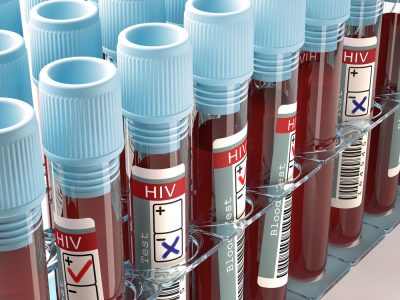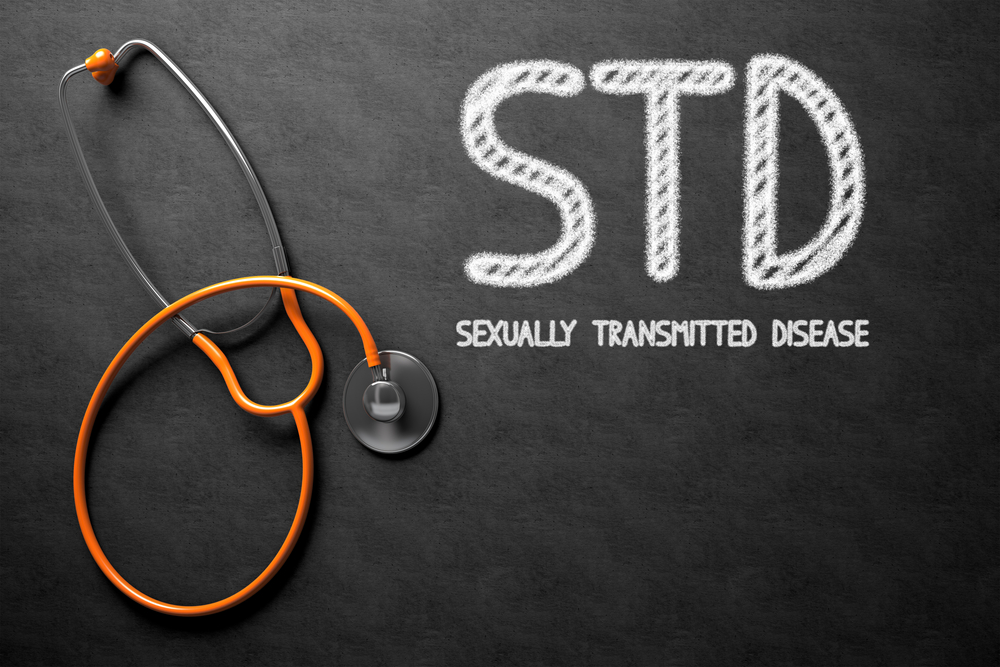What are STDs?
Sexually transmitted diseases like the name imply, are infections transmitted during sex, or during any type of sexual activity.
Some STDs can be cured by taking certain antibiotics; however, others are persistent and incurable. Some STDs have glaring signs and symptoms, while others may not show any symptoms at all; it can only be detected through a medical test.
Many people who have STDs do not know because its signs are not showing; hence they spread the infection to others.
Types of STDs
Chlamydia
Chlamydia can be very sneaky because it doesn’t have symptoms you can see or feel. Sometimes, the signs are so small that you may pay no attention to it, or even mistake it for something else.
Most times, people don’t know they have Chlamydia, that’s part of the reason why it is common, and also why it is vital to get tested regularly.
Chlamydia can lead to a severe issue like infertility, that’s if left untreated. However, it can be easily cured if noticed early, hence why it important to get tested regularly.
Re-infection can also occur, especially if your partner doesn’t get treated alongside with you.
Symptoms of Chlamydia
Symptoms of Chlamydia can take several weeks after you have been infected to show up. The symptoms include:
- Pain during sex
- Swollen testicles
- Milky/clear discharge from the penis
- Bleeding around the anus
Sometimes Chlamydia may infect your eyes, and you may have redness and itching. Most times, Chlamydia symptoms in men are likely to be noticeable in the morning.
If you notice any of these signs, you should see your doctor. Note that most people don’t show symptoms, and the only way to find out is to get tested.
Treatment of Chlamydia
Chlamydia can be cured with a short course of antibiotics. Depending on the type of treatment you are prescribed, you might be able to take all in a day or a week.
Persons who are taking antibiotics for Chlamydia should still abstain from sexual activities for seven days after the single dosage or until the completion of the seven days dosage. Azithromycin or Doxycycline are antibiotics usually prescribed for Chlamydia.
It’s imperative to take all of the medications prescribed for Chlamydia, and these medications should not be shared with anyone.
Although medication is very effective in treating Chlamydia, it won’t repair any permanent damage caused by the disease. However, if the symptoms persist after receiving treatment, you should go back to your doctor for re-evaluation.
Also, remember that even if you have been treated for Chlamydia, you are not immune to it.
Gonorrhea
 Gonorrhea is an infection that spreads through sexual activity, including penis to mouth and penis to the rectum. It is mostly spread during oral or anal sex.
Gonorrhea is an infection that spreads through sexual activity, including penis to mouth and penis to the rectum. It is mostly spread during oral or anal sex.
In men, gonorrhea symptoms usually appear between three to seven days after infection, but for some persons, it can take as long as thirty days for the sign to appear.
Often, the symptom doesn’t even show at all for some people, but it isn’t exactly a good thing, because they are at risk of developing serious complications to gonorrhea.
Past infections don’t make you immune to gonorrhea; it even allows complications to occur more rapidly.
When gonorrhea is left untreated, it can result in swelling of the penis and testicles. It can also cause infertility and make you more susceptible to human immunodeficiency virus (HIV).
People who have gonorrhea and HIV can pass both diseases more accessible to their partners.
Symptoms of Gonorrhea
Gonorrhea symptoms can affect many parts of your body, but it is common in the genital tract, but in many cases, it causes no symptoms. However, the symptoms include:
- Painful urination
- Swelling in one testicle
- Watery discharge from the penis
Gonorrhea can also affect other parts of the body like:
Eyes
When gonorrhea affects the eyes, it causes eye pain, and can even make your eyes sensitive to light. And in some instances, there can be pus-like discharge from both eyes.
Joints
If one or more of your joints become infected, it might be red and swollen. Moving of your joints, like when walking, would be extremely painful.
Rectum
Gonorrhea can cause anal itching, and even result in strain during bowel movement. In some cases, it may also result in spots of blood on toilet tissue after using the toilet.
To avoid getting re-infected with gonorrhea again, stay away from sex until you and your partner have completed treatment.
Treatment for Gonorrhea
Modern antibiotics can be used to cure gonorrhea injections. There are no home remedies that would successfully treat an infection with gonorrhea.
It can be treated with an antibiotic injection of Ceftriaxone one time to the buttocks or one dose of Azithromycin by mouth. Once you begin these treatments, you should feel relief.
HIV- Human Immunodeficiency Virus
This virus is perhaps the most feared sexually transmitted disease. It can be gotten through sexual activities or the sharing of a needle with an infected person.
As it progresses, this virus causes dysfunction to the immune system. That’s because it affects explicitly the CD4 cells that protect the body from illness. Unlike other infections that can be fought by the immune system, HIV can’t be eliminated by the immune system.
The average time from infection to immune suppression is about ten years. However, there are no specific symptoms that signal HIV infection, but in some persons, flu or fever might occur three weeks after contracting the virus.
The symptoms of HIV vary significantly in individuals, but it generally follows a particular pattern.
Symptoms of HIV
The symptoms of HIV are divided into three different stages:
- Acute Illness
- Symptomless stage
- Advanced infection
Acute Illness
About 80% of people who contract HIV get flu-like symptoms during the first 2-4 weeks and this illness is known as acute illness. Acute HIV infection is the beginning stage of HIV, and it can last until the body forms antibodies against it.
The common symptoms of this stage include:
- Sore throat
- Fever
- Severe headaches
- Fatigue
- Muscles and joint pains
- Nausea and vomiting
- Body rash
These symptoms can last for about one to two weeks. And if you are experiencing any of these signs, immediately contact your healthcare provider so you can get tested.
Symptomless Stage
 This stage is also referred to as the asymptomatic period because, after the initial symptoms, you can go for years without any additional symptoms coming up.
This stage is also referred to as the asymptomatic period because, after the initial symptoms, you can go for years without any additional symptoms coming up.
During this time, the virus multiplies and weakens the immune system, but still, you may not feel weak at this period. At this stage, you can still easily transmit the virus to others; that’s why early testing is necessary even if you feel fine.
Advanced Infection
It may take years, but eventually, HIV breaks down a person’s immune system. Once this occurs, it progresses to stage 3, which is often referred to as AIDS.
AIDS is the last stage, and at this point, you already have a damaged immune system, making you prone to other infections. People living with stage 3 HIV may experience the following symptoms:
- Persistent diarrhea
- Rapid weight loss
- Rashes on the genitals
- Memory loss
- Nausea and vomiting
HIV affects the production of the male sex hormone and can lead to low testosterone levels, which can also cause erectile dysfunction.
Treatment of HIV/AIDS
Currently, no prescribed medication can be used to cure HIV. Once you get injected, your immune system cannot get rid of it. But, some medications can control it, for additional symptoms or complications not to arise.
The medications used to control HIV are called antiretroviral therapy (ART), and anyone who gets diagnosed with HIV should get started on ART regardless of the stage.
ART is mostly a combination of three or more drugs from different classes of drugs. This approach is the best chance of reducing the amount of HIV in the blood.
Consistent use of effective ART with an undetectable HIV viral load in the blood is the best way and your best chance at staying healthy. Staying on ART helps you:
- Keep your immune system strong
- Reduces your chance of transmitting the virus to others
- Reduces your chance of getting infected by other bacteria/virus
When on ART, you can also help yourself by taking supplements that would boost your immune system. An adequate amount of Zinc and Vitamin C is needed to keep the immune system healthy, while Iron and Vitamin B12 are required for healthy blood cells.
However, before starting on any new supplement, you should discuss with your health care provider, because some can interact with your medications.
You should also consume adequate calories throughout the day to help maintain a healthy weight, and be sure to add protein to your every meal.
Protein is essential in repairing and supporting cells in the body and also plays a significant role in the immune system. Good sources of proteins include poultry, eggs, fish, lentils, beans, and low-fat dairy food.








COMMENTS